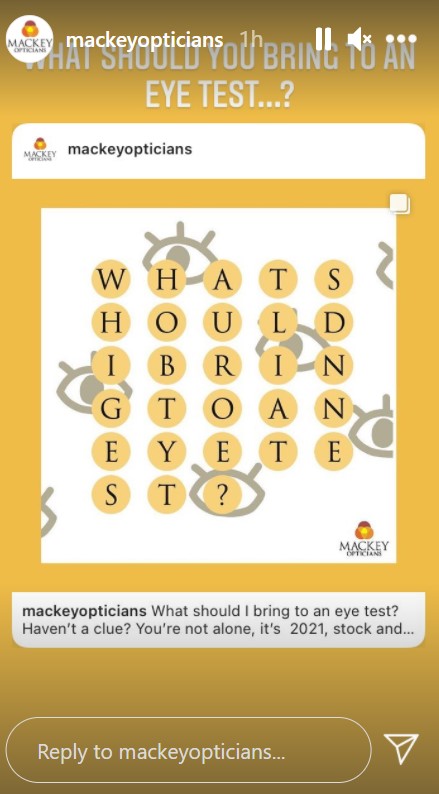- Your current glasses, sunglasses, and contact lenses if you wear them.
Bring all of the eyewear you have been using since your last exam. Your optometrist will compare your new prescription to the one(s) you have been using and let you know if they are the best prescription for you.
If you wear contact lenses – wear these to your eye exam (unless you have been advised not to). You will likely be asked to remove them at some time during the exam, so be prepared and bring your case and solutions along too.
- A list of your current medications, supplements and any eyedrops you use.
In order for your optometrist to provide the optimum care, they need to know all medications, supplements and eyedrops you are currently using, not just the ones that are directly linked to your eyes. Many medications have side effects that can affect your eyes and vision. It is best if you can include the dosage and how often you take them too.
Please tell your optometrist about any drug allergies and any other “remedies” that you may be taking, not just your medications.
- Family history
Having a clear family history can be very helpful in diagnosing and monitoring for any eye conditions. Your optometrist will want to know if anyone in your immediate family had or has an eye disease or general health conditions
- Appropriate health care cards or insurance information
Depending on your age and any benefits you are receiving, you may receive some coverage for your eye exam through the GOS/NHS, so bring any proof of benefits with you as well as your Health and Care (“NHS”) number.
If you have any private medical/health insurance that helps you with your eye exam or eyewear, then bring that information with you if you need a form filled in.
And if your company pays for your eye examination and/or help towards your spectacles, you may need proof of employment depending on your company scheme.
But even with all of that, there may still be some extra expenses so be prepared with cash, debit and/or credit cards.
- The name of your GP and address
Optometrists work as part of your overall health team and with your consent may want to communicate with your family physician the results of your eye examination or request further information from them to assist in your vision care plan.
Your Optometrist can now get access to your NIECR (Northern Ireland Electronic Health Record) to check your medications, GP address and any history recorded about your eyes but they will need your HC number and you must give consent for them to look at it.
- Your planner
While you are in the office ask if you can book your next exam. Your optometrist will have just told you when would be a good time to get everything checked again, or may have recommended a schedule for follow-up, why wait?
Stay Up To Date With The Latest News
Be informed about our exclusive sales and top deals.
